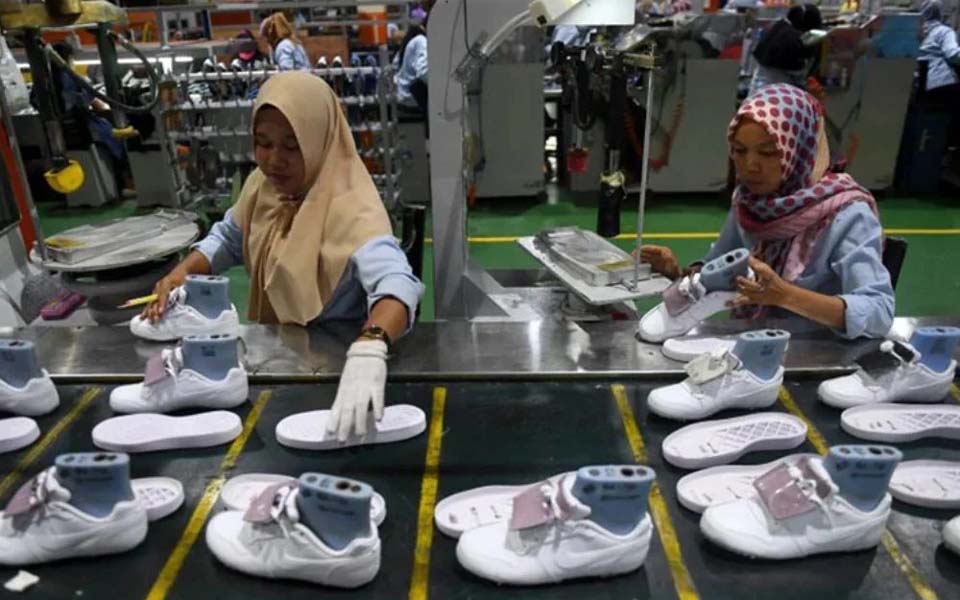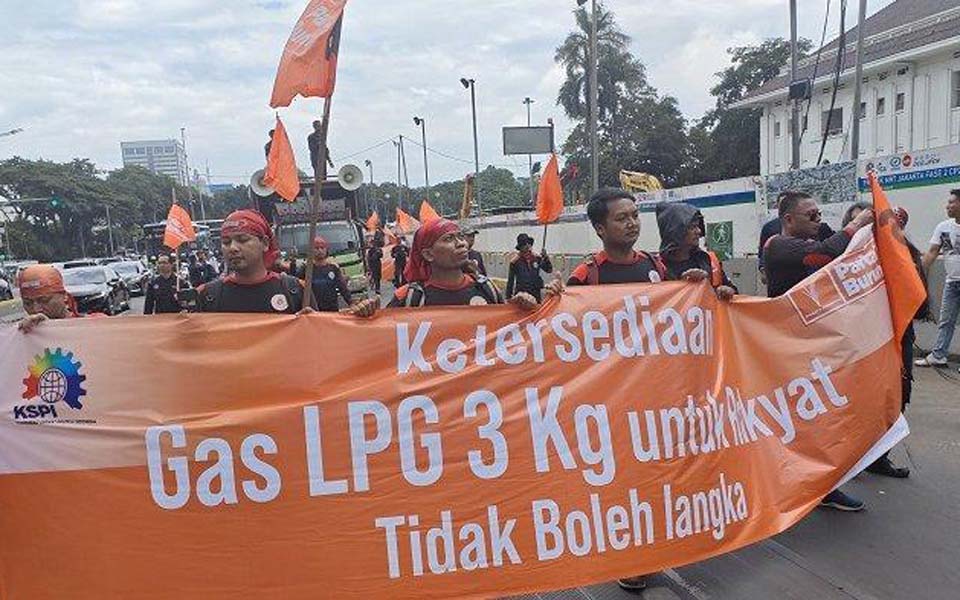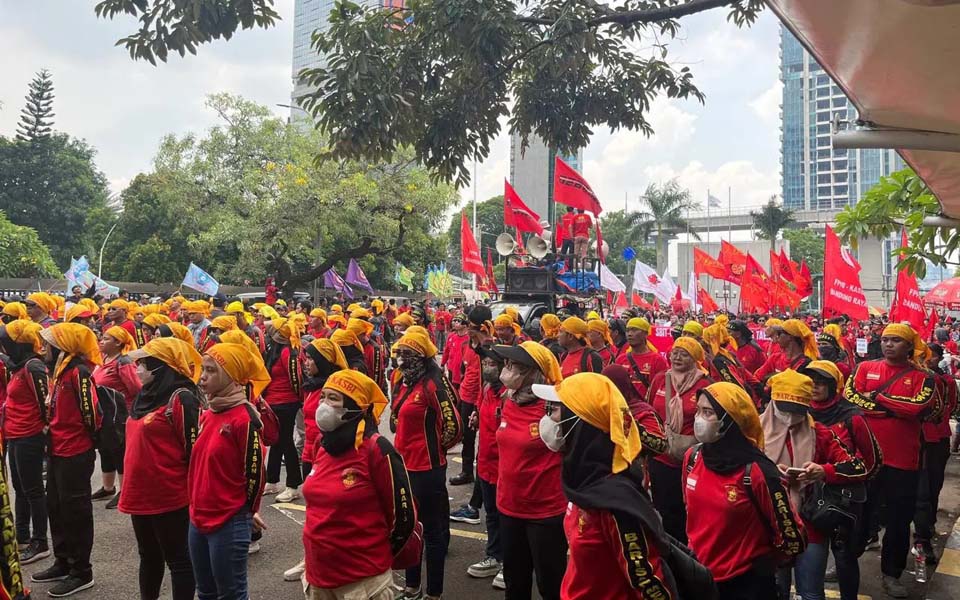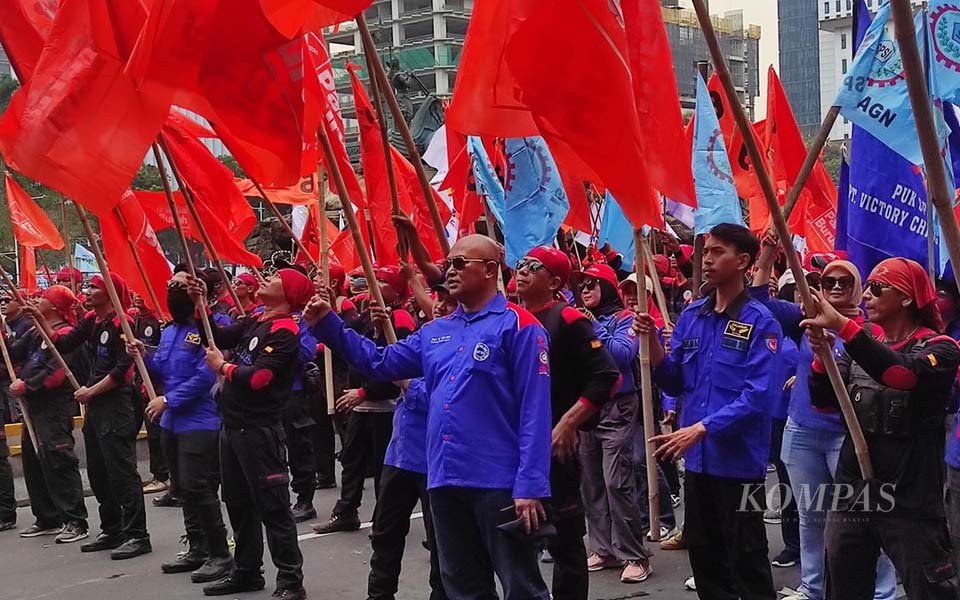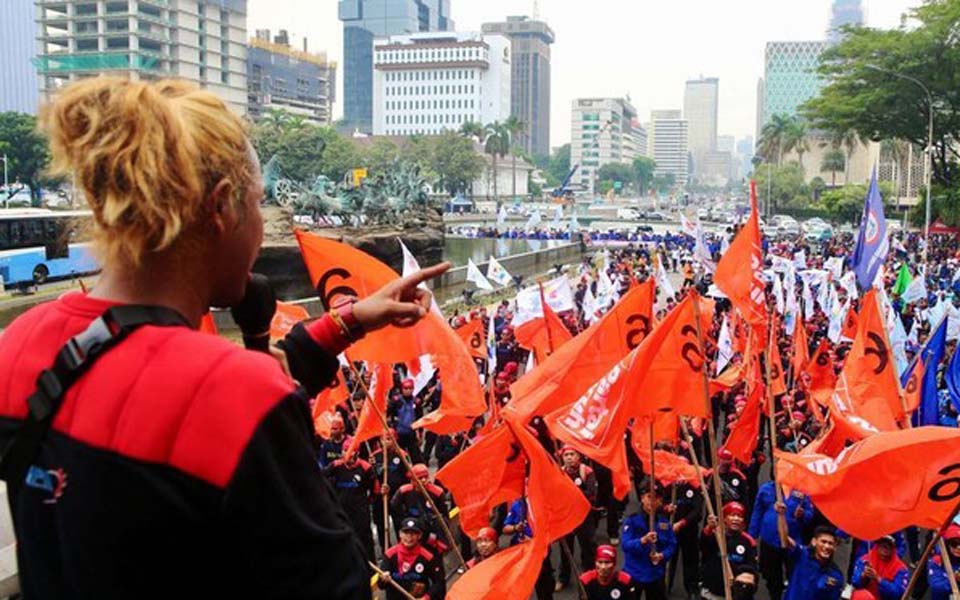Jakarta – The increasing use of contract labour is undermining the strength of national trade unions and making it difficult for workers to struggle for decent working conditions.
Labour contract systems are now in effect in almost all business sectors. In general, contract workers are only employed on a two-year contract, which can be extended by a year before they are then dismissed. This situation is making workers reluctant to join trade unions.
These among other problems were raised during a Confederation of Prosperity Labor Unions (K-SBSI) national coordination meeting in Jakarta on Sunday February 15, which was attended by 488 people from throughout Indonesia.
The meeting was opened by Labour and Transmigration Minister Erman Suparno and attended by Indonesian Employers Association (APINDO) chairperson Djimanto, the deputy head of the Confederazione Generale Italiana del Lavoro (CGIL) Leopold, and a representative from the United States Embassy in Jakarta.
K-SBSI Advisory Council Chairperson Mukhtar Pakpahan said Law Number 13/2003 on Labour – which allows for contract labour – is one of the reasons for the decline in workers’ interest in joining a trade union. “Yet, by joining a trade union, workers can collectively struggle for decent working conditions,” he said.
According to K-SBSI President Rekson Silaban, the national coordinating meeting was held specifically to formulate the K-SBSI’s strategy to strengthen the labour movement. The final goal being to create a labour contract system that is more transparent so that if there are violations, trade unions at the workplace level can challenge them.
Department of Labour and Transmigration data for 2007 cited that there are a total of 22,275 companies, with 2,114,774 workers, which provide jobs to other companies. In addition to this, there are 1,540 contract labour companies that employ 78,918 workers and 1,082 labour service provider companies that employ 114,566 workers.
Suparno explained that the weakening of trade union strength has not just been occurring in the K-SBSI. A similar trend has been taking place in other trade unions. “This is reflected by the minimal participation of workers in trade unions”, he said.
Out of the 112 million people in the work force nationally, 60 million are employed in the informal sector and 37 million in the formal sector. Out of the 37 million employed in the formal sector, only 4 million are registered as members of a trade union. (ham)
[Translated by James Balowski.]







